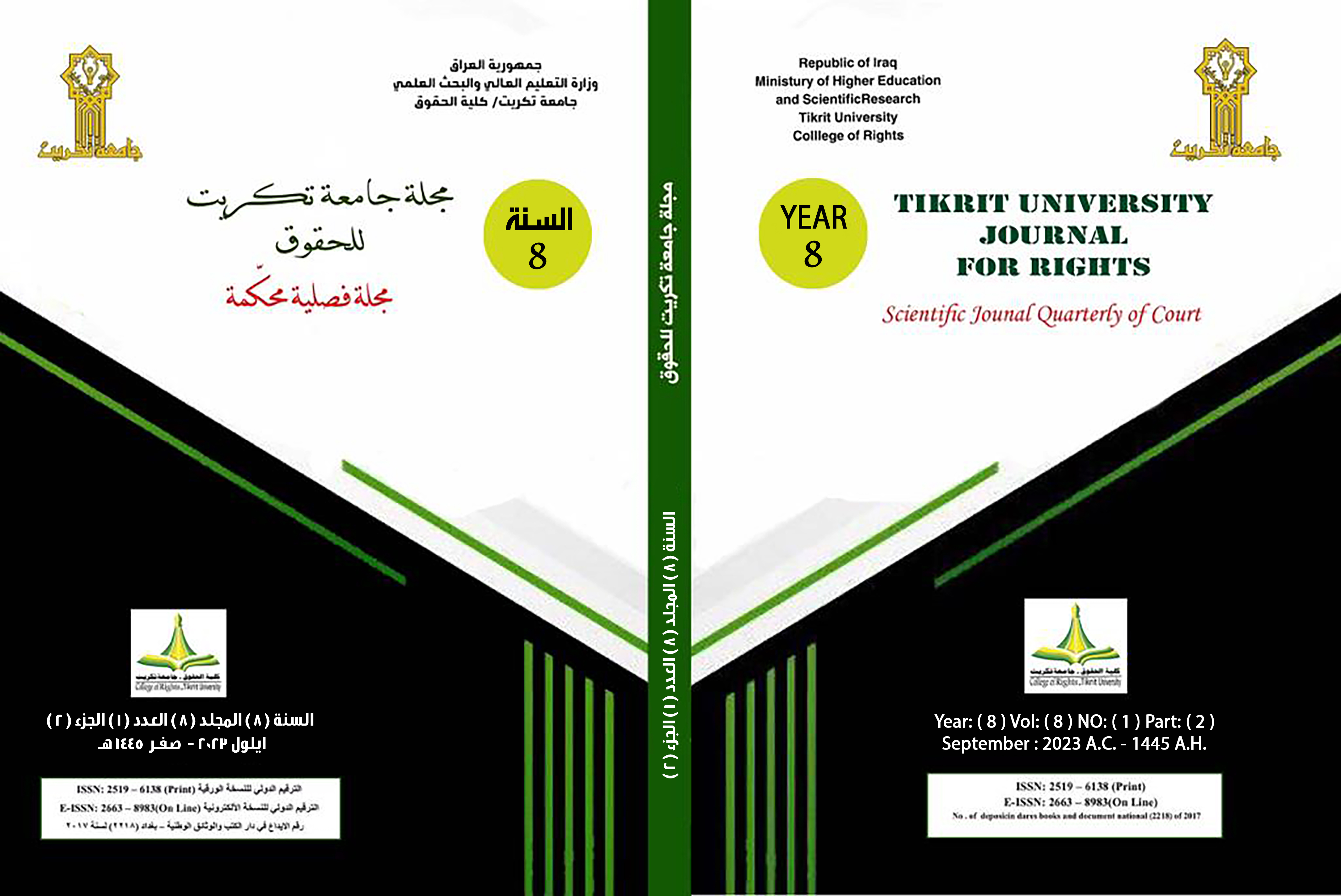The role of the Council of Ministers in evaluating state finances through budget policy
Keywords:
- General Budget. - State Finance Assessment. - Revenues. - Expenditures. - Food Security.Abstract
Abstract: The general government budget is an estimated statement of government expenditures and revenues a future period, a year that requires the approval of the legislative authority, and it is a major tool of fiscal policy that Committed to achieving the country's social and economic goals. It goes through a full cycle called the general budget cycle, which consists of four stages, the first stage of which begins with preparation and preparation, and the second stage, which is concerned with the adoption stage, then the third stage, which is related to implementation, and finally the stage of monitoring implementation, which is the fourth stage. The general budget (in any country of the world) depends mainly on the national economy and is affected Notably, the size of public budgets increased dramatically in much of the country, especially in the second half of the 20th century AD. In addition to its effective role in achieving food security by allocating the necessary amounts that are disbursed to achieve food security and determine the revenues specified for this purpose, therefore, the general budget must rely on very accurate statistics, studies and a scientific database, as the more accurate the information and statistics, the easier it is for the preparers and executors of the general budget to monitor and finance the amounts related to food security, and this calls for identifying food security indicators and how to achieve it and creating all ways to meet these challenges. Because This is one of the most difficult challenges facing the country.
References
Ahmed Al-Attar, ways to achieve food security, research published on the website http://www-aliazeerant.com.
Fathi, Muhammad, Getting out of the impasse is the art of crisis management. Al-Asmia Distribution and Publishing House, Cairo, 2001.
United Nations Relief Programme, Food Security Report 2005.
D. Al-Najjar, Farid Ragheb, Crises and Disasters in the 21st Century, Comparisons - Strategies - Behaviors; University House, Cairo, 2009.
Dr. Ahmed Khalaf Hussein Al-Dakhil, Public Finance from a Legal Perspective, Dar Al-Masala, first edition, Baghdad, 2022.
D. Khaled Al-Shawi, Tax Theory and Libyan Tax Legislation, 3rd edition, Garinus University Publications, Benghazi, 1953.
D. Taher Al-Janabi, Finance and Financial Legislation, Al-Atak Book Industry, Cairo, 2008.
D. Adel Falih Al-Ali and Dr. Talal Kaddawi, The Economics of Public Finance, Book One, Dar Al-Kitab for Printing and Publishing, University of Mosul, Mosul, 1989.
D. Yahya Qasim Ali Suhail, Al-Sahl in Public Finance and Yemeni Tax Legislation, Faculty of Law, University of Aden, 2000.
Suad Saeed Ghazal, The Use of Planning Budgets in Financial Control in Socialist Sector Units in Application to the General Electricity Corporation, Master’s Thesis Submitted to the College of Administration and Economics at the University of Mosul, 1987.
Adel Al-Hiyari, Tax on Public Income (A Comparative Study), PhD thesis submitted to the Faculty of Law at Cairo University, 1968.
Abdel-Al Al-Sakban, The Science of Public Finance, vol. 1, 1st edition, Al-Ani Press, Baghdad, 1972, p. 145.
Muhammad Shaker Asfour, General Budget Conditions, Dar Al Masirah Press, Amman, 2008.
Eugene A. Boller, Macroeconomic Theory, translated by Ahmed Manaji, Alexandria, 1988





